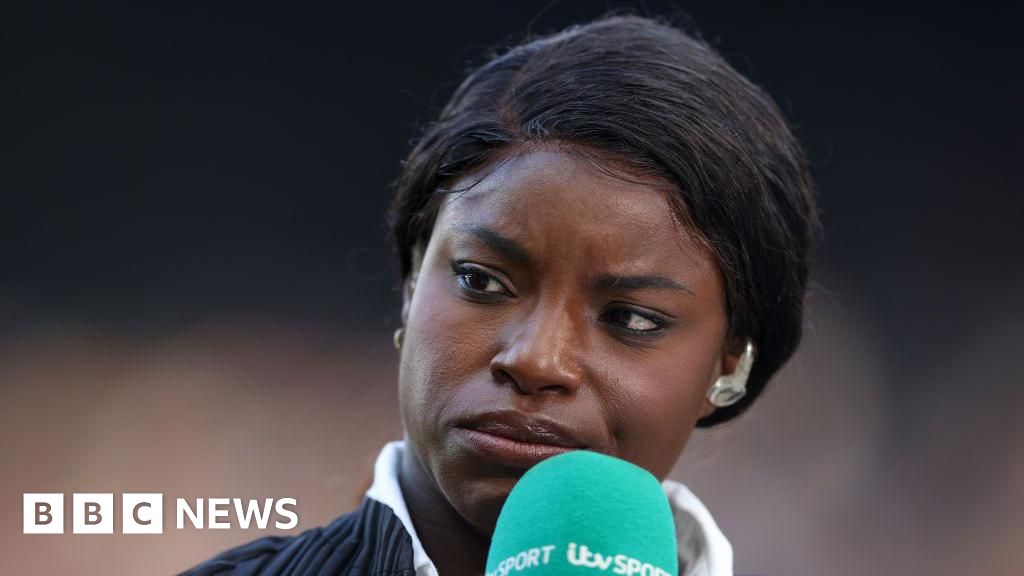Aluko says 'justice served' after Barton convicted

```html Joey Barton Convicted of Sending Grossly Offensive Social Media Posts
Former professional footballer Joey Barton has been convicted on six counts of sending grossly offensive social media posts aimed at pundit Eni Aluko, commentator Lucy Ward, and broadcaster Jeremy Vine. The verdict, delivered at Liverpool Crown Court, marks the culmination of a legal battle sparked by Barton's online activity in early 2024.
The charges stemmed from posts made on X (formerly Twitter), where Barton compared Aluko and Ward to serial killers Fred and Rose West and referred to Vine using offensive language. While acquitted on six other counts, including a comparison of Aluko to Joseph Stalin and Pol Pot, the jury found him guilty of sending messages that crossed the line between free speech and criminal behaviour.
Aluko: 'Justice Has Been Served'
In a statement released following the verdict, Eni Aluko, a qualified lawyer and respected football pundit, expressed relief. "Social media is a cesspit where too many people feel they can say things to others they wouldn't dream of saying in real life under the guise of freedom of speech," she stated. "This is a reminder that actions online do not come without consequences. The messages directed at me, Lucy Ward and Jeremy Vine by Joey Barton were deeply distressing and had a real damaging impact on my life and career. I am glad that justice has been served."
Lucy Ward, who also testified during the trial, echoed Aluko's sentiments in an Instagram post, stating: "Freedom of speech does not mean freedom from consequences. It's been an extremely difficult and sometimes harrowing last two years."
The Posts and the Aftermath
The controversy began in January 2024 when Barton, reacting to Aluko and Ward's commentary during an FA Cup tie, superimposed their faces onto a photograph of Fred and Rose West, notorious serial killers. He also accused Aluko of being present "only to tick boxes" as part of diversity schemes, linking her involvement to the Black Lives Matter movement. The posts generated widespread condemnation and led to the subsequent legal action.
Barton, who has a significant following on social media, defended his actions, claiming his posts were intended as "dark and stupid humour." He denied intending to imply that Jeremy Vine was a paedophile when using offensive language and referencing "Epstein island."
Expert Analysis: A Turning Point for Online Accountability?
Dr. Laura Bates, a leading expert on online harassment and digital safety, believes the Barton case could set a crucial precedent. "This verdict sends a powerful message that online abuse, particularly when targeted at individuals based on their gender or race, will not be tolerated," she explains. "For too long, social media platforms have been allowed to operate with impunity, enabling a culture of impunity for perpetrators of online hate. This case demonstrates that there are real-world consequences for online actions, and that victims have recourse to justice."
Historical Context: Football and Online Abuse
The Barton case highlights a growing problem of online abuse within the football community. Players, pundits, and fans alike are frequently subjected to hateful and discriminatory messages on social media platforms. This issue has prompted calls for greater regulation and accountability from social media companies, as well as increased support for victims of online harassment.
Former England international Gary Lineker has been vocal about the need for social media companies to do more to combat online abuse, stating: "The level of abuse on social media is just unacceptable, and it's getting worse. We need to hold these companies accountable and ensure they are doing everything they can to protect users from harmful content."
Sentencing and Future Implications
Joey Barton is scheduled to be sentenced on December 8th. The conviction carries significant implications for his future career and public image. Beyond the legal ramifications, the case has reignited the debate surrounding freedom of speech, online accountability, and the responsibility of individuals with large social media platforms.
The case also prompts a wider reflection on the impact of social media on public discourse and the need for a more civil and respectful online environment. As Aluko stated, "This is a reminder that actions online do not come without consequences." It remains to be seen whether this conviction will serve as a deterrent to others and contribute to a more responsible use of social media platforms. ```
Originally sourced from: BBC Sport Football
